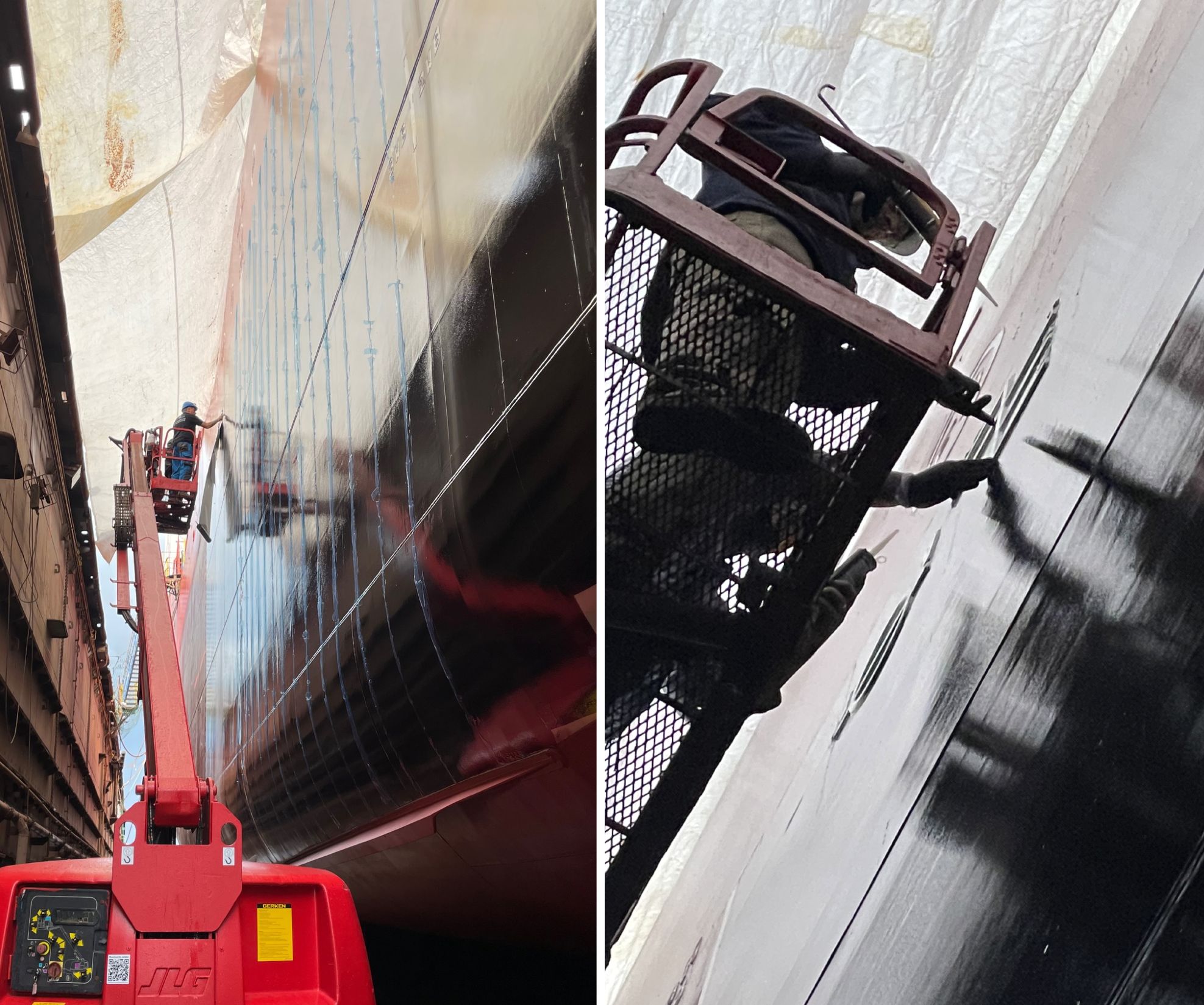According to the recently published „Maritime Forecast to 2050” by DNV, global shipping is finding itself in a “decisive decade” to drastically reduce its CO2 emissions. A DNV press release states: “The shipping industry is facing increasing regulatory pressure with regard to decarbonisation. Most recently, the World Shipping Organization (IMO) tightened its requirements in July. According to this, the industry is to reduce its greenhouse gas emissions by 20% by 2030 and to net zero by around 2050. To meet its expected annual fuel demand of 17 million tonnes of oil equivalent (Mtoe) by 2030, shipping needs 30-40% of the world’s projected CO2-neutral fuel supply. Ship owners should therefore broaden their view beyond the issue of fuels and examine what measures they can take today, especially to increase energy efficiency and reduce CO2.”
The HATAG FRS system is an important component in the complex response to this challenge. The system with the FRF Fouling Release Foil on an epoxy-based corrosive protection barrier ensures the continuous maintenance of smooth, friction-free underwater surfaces. This leads to significant savings in fuel costs and corresponding reductions in emissions: Tests have already measured a reduction in drag of eight to 14 per cent.
The silicone-based, multi-layered film for protection against biofouling in the underwater area provides non-toxic fouling protection. Already at a hull speed of five to six knots, the fouling is removed from the hulls and falls back into the natural environment. Neither toxins nor microplastic particles, as with conventional antifouling paints, are released into the water.
The FRS system is an ideal solution for the protection of all surfaces in the underwater area, both from an ecological and an economic point of view. Pilot projects and initial practical experience have confirmed this and delivered very positive results.
DNV Maritime CEO Knut Ørbeck-Nilssen stressed on the occasion of the report mentioned at the beginning that it is not enough to focus only on alternative fuels: “Ensuring a greener fuel supply is essential. However, focusing on fuels alone may prevent us from making a difference already in this decade, and ambitious declarations for the future alone are not enough. We need sustainable steps to reduce emissions,” the DNV press release states. The HATAG FRF film is just such a step.

